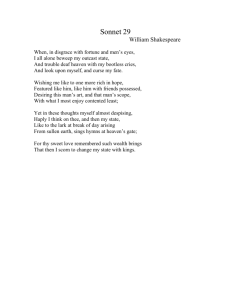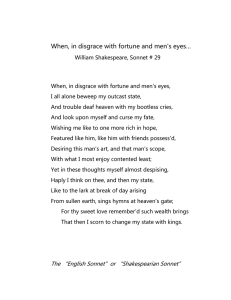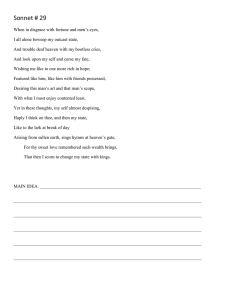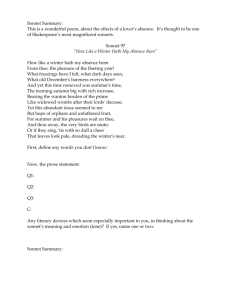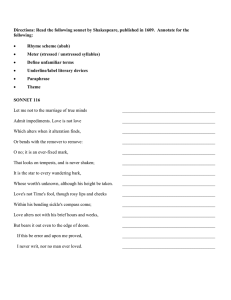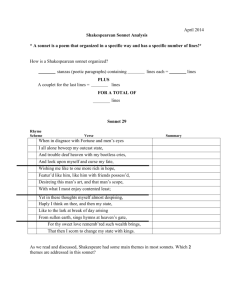2202242 Introduction to the Study of English Poetry 2006b
advertisement
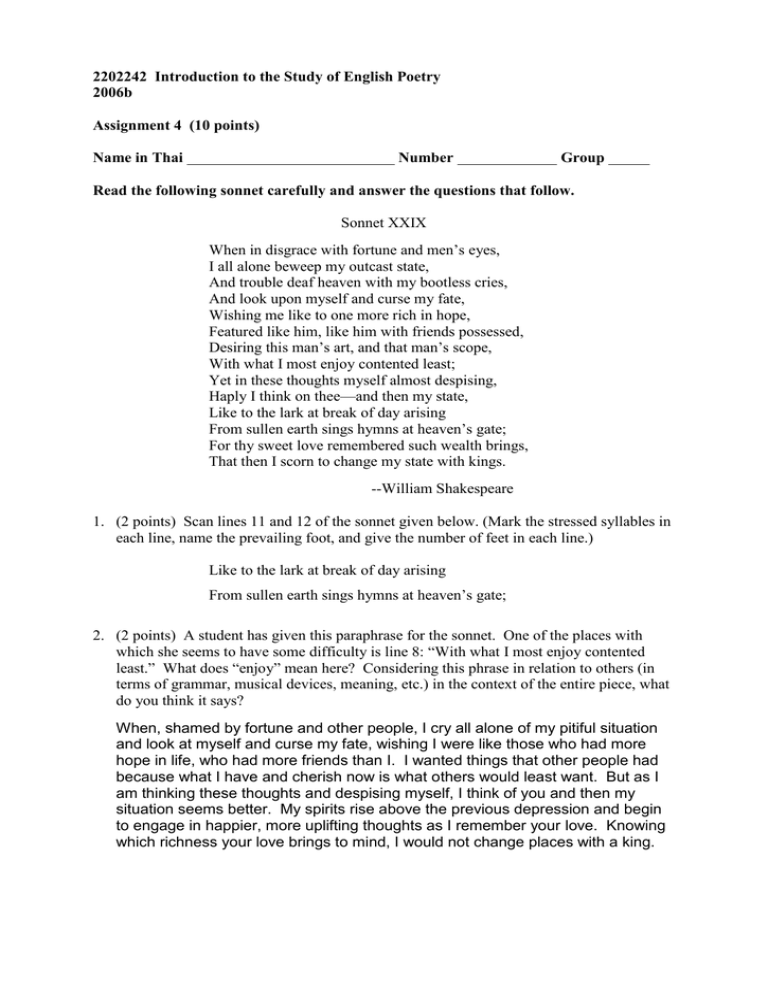
2202242 Introduction to the Study of English Poetry 2006b Assignment 4 (10 points) Name in Thai Number Group Read the following sonnet carefully and answer the questions that follow. Sonnet XXIX When in disgrace with fortune and men’s eyes, I all alone beweep my outcast state, And trouble deaf heaven with my bootless cries, And look upon myself and curse my fate, Wishing me like to one more rich in hope, Featured like him, like him with friends possessed, Desiring this man’s art, and that man’s scope, With what I most enjoy contented least; Yet in these thoughts myself almost despising, Haply I think on thee—and then my state, Like to the lark at break of day arising From sullen earth sings hymns at heaven’s gate; For thy sweet love remembered such wealth brings, That then I scorn to change my state with kings. --William Shakespeare 1. (2 points) Scan lines 11 and 12 of the sonnet given below. (Mark the stressed syllables in each line, name the prevailing foot, and give the number of feet in each line.) Like to the lark at break of day arising From sullen earth sings hymns at heaven’s gate; 2. (2 points) A student has given this paraphrase for the sonnet. One of the places with which she seems to have some difficulty is line 8: “With what I most enjoy contented least.” What does “enjoy” mean here? Considering this phrase in relation to others (in terms of grammar, musical devices, meaning, etc.) in the context of the entire piece, what do you think it says? When, shamed by fortune and other people, I cry all alone of my pitiful situation and look at myself and curse my fate, wishing I were like those who had more hope in life, who had more friends than I. I wanted things that other people had because what I have and cherish now is what others would least want. But as I am thinking these thoughts and despising myself, I think of you and then my situation seems better. My spirits rise above the previous depression and begin to engage in happier, more uplifting thoughts as I remember your love. Knowing which richness your love brings to mind, I would not change places with a king. 3. (6 points) Write a short essay on one of the following two topics. a. Unlike the Italian sonnet where the rhyme scheme generally structures the argument into the octave and sestet with a turn between the two, Shakespeare’s Sonnet 29 develops “three trains of thought and the final couplet [provides] some kind of reversal or conclusion.” What is the speaker’s attitude toward love? Explain how these metrical devices, along with musical and other devices shape or enhance the argument he is making about love. b. Several poems we have encountered use contrasting places or things to represent opposing forces or ideas that are central to the meaning of the work (ex. cats and dogs, rhodora and rose, “a fine big house” and “a shack,” money and blood). Discuss the role of what Shakespeare contrasts here. You may explore how they differ, what they represent, and how their contrast contributes to the meaning of the sonnet.
